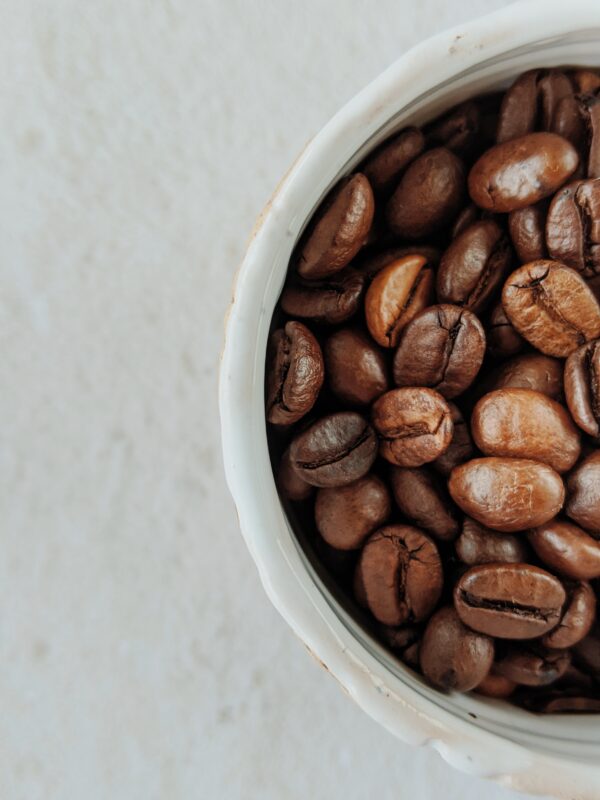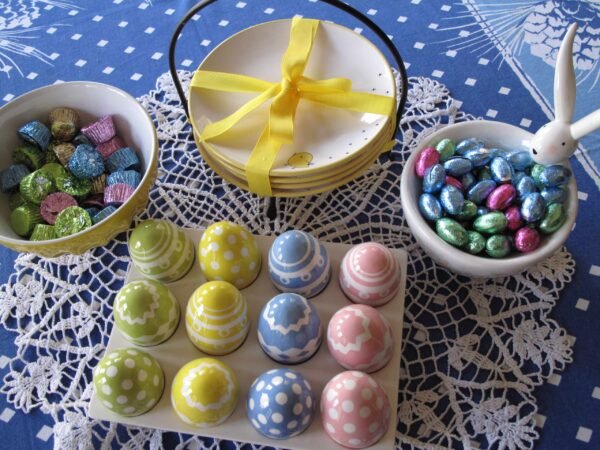
Benefits of Drinking Dark Roast Coffee

What do you prefer; Light or Dark Roast Coffee…?
You’ve probably heard of the term dark roast coffee before, but if you’re not a coffee enthusiast, that doesn’t ring your bells. Americans prefer lighter roasts, while the dark roast is a popular choice in Europe. Anyway, this type of hug in a mug is something you shouldn’t miss. At least give it a try.
Dark beans lose many natural characteristics because of prolonged heat exposure. The caffeine content remains relatively the same, but the aroma profile changes significantly. As a result, this coffee gets stronger flavors and caramel tones.
Hence the bitter and slightly sour taste of well-roasted beans. In general, it has a bittersweet, toasty, or chocolaty flavor, depending on the bean type. Many people love this feature in their favorite dark roast coffee, especially in the morning.
Brain Health
A new study has proven many benefits of dark roast beans. Phenylindanes are compounds found in them that can prevent the hallmarks of Alzheimer’s disease. These compounds are responsible for the bitter taste of roasted beans. The longer you burn them, the more phenylindanes they’ll have.
These compounds are also responsible for the healthy effect of this hot drink on the brain. Research has shown that drinking dark roast coffee increases serotonin levels, a brain-protective chemical. This substance is responsible for mood regulation, digestion, sleep, and immune system functions. So a cup of a hug in a mug when you feel down may be just what you need.
Good for Liver
Chlorogenic acid is beneficial for the liver, reducing hepatic steatosis and cirrhosis. This compound helps to regulate phosphatases, primary metabolic pathways that release glucose from the liver. Studies have shown that drinking dark roast coffee can reduce the risk of developing cirrhosis, hepatic steatosis, and liver fibrosis.
Healthy Heart
Dark coffee is also a blessing for your heart’s health. The researchers found that those who drink it daily reduced their risks of coronary disease and stroke. But, of course, that refers to moderate intake, approximately 3 to 4 cups per day.
Most heart issues occur due to insufficient blood flow. It happens when blood vessels clog due to calcium deposition. For example, people who drank a few cups of hug in a mug a day had less calcium in their coronary arteries than those who didn’t drink it at all. Of course, other healthy habits will also contribute to a healthy heart.
Also, the already mentioned effect of coffee on the brain is directly related to heart health. Namely, serotonin secreted under the influence of chemicals from roasted beans affects the stress response. The better this response of the body, the less the heart suffers.
Fight Cancer
It’s not entirely clear whether drinking dark roast coffee reduces the risk of developing cancer. But, for now, the claim about the prevention of basal cell cancer has been proven, especially in women. The percentage of ladies diagnosed with this disease falls by a fifth when they drink 3 to 4 cups of this hot potion daily. Also, it’s known that compounds from dark roasted beans prevent cancerous cells from ‘recovering’ after chemotherapy. That significantly prevents relapse.
The association between coffee and cancer is not yet definitive, so further studies are needed to clarify the mechanisms responsible for the effect. But it certainly can’t hurt, at least as a comfort drink during the hard days of chemo or surgery.
Aside from coffee, changing some lifestyle habits can help you minimize cancer risks, such as limiting alcohol and smoking. You can also try to eat a raw and plant-based diet. Sugars from processed foods are cancer boosters, so try to gradually reduce their intake and eventually cut it or find a decent alternative.
Source of Antioxidants

Some studies have shown that coffee consumption reduces the risk of cancer, diabetes, and Alzheimer’s disease. These diseases are linked to damage to genetic material. Also, regular drinkers can significantly reduce the risk of inflammatory conditions like arthritis or IBS.
The rich brown color of dark roast coffee has many health benefits. It contains antioxidants that fight free radicals, a type of molecule that damages healthy cells and trigger inflammations. These are also linked to cancer occurrence. Studies have shown that regular drinkers have a lower risk of multiple cancer types.
Anti-Age Effect
The darker roast beans contain many different phenols. These compounds prevent protein-based buildup that can cause damage to the nervous system. Also, these beans can replenish blood levels with Vitamin E and glutathione. These substances protect against mental health problems, treat inflammation, and slow down aging.
Great for Detox
Besides being a delicious beverage, dark roast coffee contains essential vitamins, minerals, and antioxidants. For example, riboflavin, a B vitamin, is a key component supporting cell growth and maintaining blood pressure levels. Besides, coffee contains plenty of vitamin B5 and pantothenic acid, which helps the body convert food into energy. That comes in handy for people who want to lose weight.
Also, black coffee is an excellent choice for a detox diet. Opt for plant-based milk rather than the usual dairy creamer for the complete pleasure of drinking it. Try to avoid creamers with artificial flavors. In fact, omitting them may be the best choice you make for your health.
Some brewing methods for dark roast are on the following link: https://perfectdailygrind.com/2019/10/how-to-adjust-your-brewing-recipe-for-coffee-roast-level/
When you find out all this, you will be glad you decided to try the gift of roast coffee. With a unique aroma, this drink will take your enjoyment to a whole new level. In addition, you will be doing something good for your health.












































